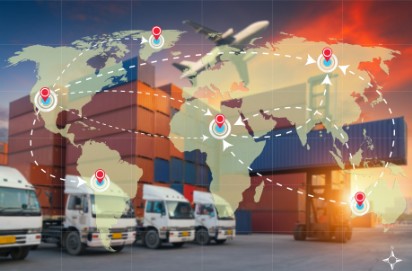What subsidies and bonuses for my e-commerce?
Tuesday 28 february 2023
Having an idea in mind costs nothing. Developing your project costs money.
When setting up a new project, it regularly happens that you have to call on financial contributions. Indeed, starting up costs money: purchasing equipment and goods, renting premises, setting up a team, fixed costs, etc. Either the project initiator has his own funds to invest at the start of the project, or he must go through a bank or any other credit system.
However, numerous initiatives are also put in place to facilitate access to certain budgets, such as subsidies. We'll explain it all to you:
1) Learn about your region/place/country
Depending on the company's head office, it is interesting to obtain information from your municipality first, then from the region, and then at the federal and even European level. Each division has made more or less budget available for certain specific aspects.
2) Dependent on its sector of activity
Some subsidies are also linked to the sector of activity. Whether in the social field, in technology, in the circular economy, ... the themes are diverse and varied, it is therefore important to create a network in your field to discover the possibilities in more detail. The e-commerce sector being both very specific (online purchases) but at the same time very broad (e.g. e-shop offering the rental of equipment for people with reduced mobility for example), it is worth finding out. .
3) Call a bounty hunter
The grant application process can be time-consuming, which is why it is possible to call on bounty hunters. They are familiar with the ins and outs and will be able to guarantee the proper follow-up of the file. It is not so much the difficulty as the time to devote to it that can lead to this option.
4) Please note, you must advance the amount and then it can be reimbursed
Good to know when applying for subsidies: The amount must first be advanced by the project leader, before being reimbursed by the subsidy organization. This is usually a percentage, not a total amount. For example, to benefit from 50% on the translation of your site, you will first have to advance the entire amount and then receive a reimbursement of the amount advanced.
5) Subsidies along the way
It is interesting to regularly ask yourself the question of any subsidies that may be available. On the one hand because the offers change and evolve, and on the other hand because the subsidies can also fall at a peak to develop a new idea along the way, when the initial project has already been launched. To apply for the same subsidy, you generally have to wait two or more years to apply for the same subsidy again. Certain subsidies are also intended for small and/or young structures. It is therefore important to keep this aspect also in mind: the number of people involved and the official date of creation of the company.
6) Specific service providers
Before applying for subsidies and before starting your project, it is important to find out about deadlines and service providers. Indeed, certain requests must be made before the start of the project. Therefore, it is better to make the request from the start so as not to find yourself left behind due to date issues. Then, it is important to ensure that the chosen service provider is approved for this subsidy in question, once again to avoid unpleasant surprises.
7) What subsidies for my e-commerce
When launching an e-commerce business, you need to think about the following points:
- Everything related to employment: first employee, reduction in social security contributions, access to a range of training courses, etc.
- The digital aspect: subsidies for the creation of the site itself will probably not be eligible since in the case of e-commerce, the site is really the basic project. On the other hand, everything relating to site optimization (SEO, etc.), site translation, digital marketing, communication, technical support, etc. may sometimes be eligible.
- The physical aspect of e-commerce: rental of an office/warehouse/workshop, renovation, insulation and compliance work.
- Development: an e-commerce can also sell products developed internally. Subsidies for R&D are also interesting to follow.
- The business aspect: everything related to the development of the e-commerce business, business coaching, mentoring, financial optimization, training, all of this can also be the subject of subsidies.
- The financial aspect: these are not subsidies strictly speaking, but certain structures offer social credits, which makes it possible to borrow money at more accessible rates than in the private sector.
As you will have understood, calling on available subsidies is a real breath of fresh air in the budget of a start-up business, but it remains one-off assistance and does not replace a possible initial investment necessary for the launch of a business. project.
Useful links in Belgium:
ONEM: https://www.onem.be/
VDAB: https://www.vdab.be/
1819: https://1819.brussels/
Hubbrussels: https://hub.brussels/fr/
Return





